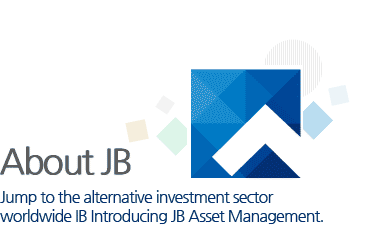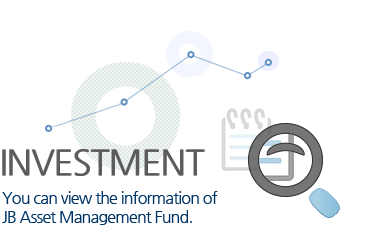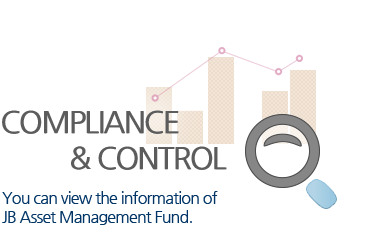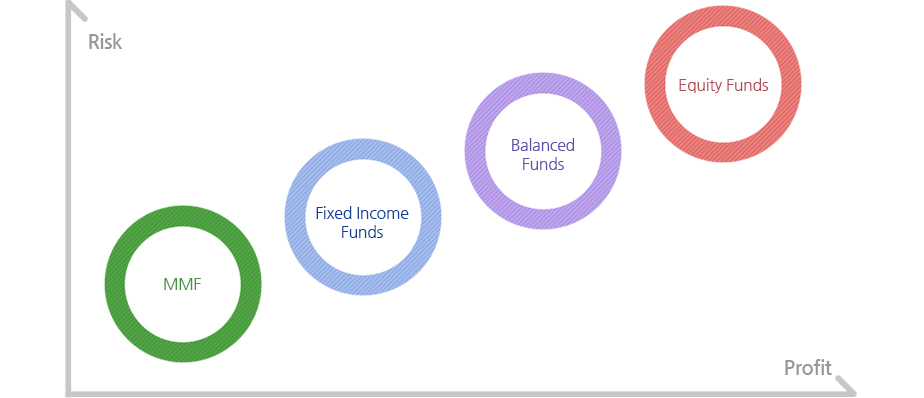- Energy &
Resources
South Korea, which imports 97 percent of its energy and minerals, has been struggling to gain more crude oil and other raw materials amid the recent international price hike. Raw materials
National Dependency on ResourcesNational Dependency on Resources Korea U.S. France China Japan Oil 100 48.8 87.6 33.7 78.5 Iron 99.3 20.6 98.5 35.7 97.9 Copper 43.2 47.4 100 22.9 5.8 * Source : Korea Resources Corp.
National Self-sufficiency Rate(2005)National Self-sufficiency Rate(2005) Korea France Spain China Japan 4.1% 95% 44% 14% 9.8% * Source : Ministry of Knowledgy & Economy, Republic of Korea
Korea industrials have begun securing raw materials abroad either through development or acquisition.
- Real Estate
Given extremely limited real estate investment options at home Korean investors are setting their sights on the larger overseas’ market.
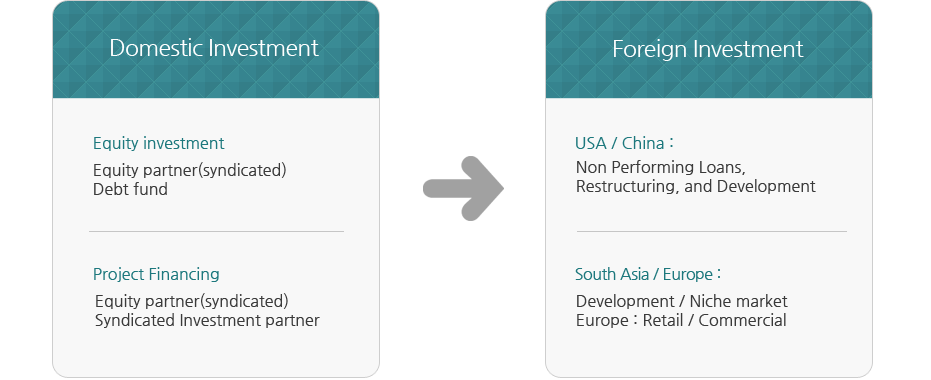
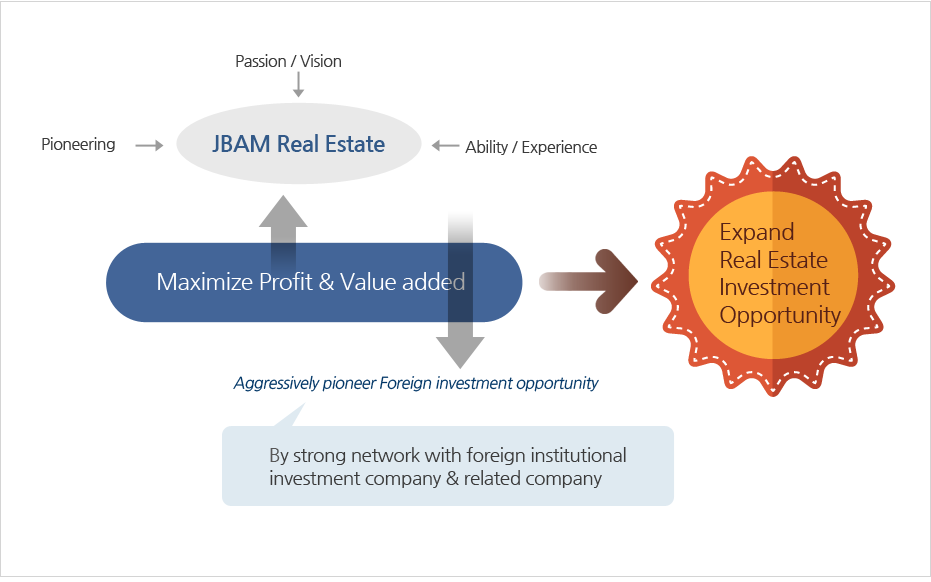
- Private Equity
The outbound M&A volume is trending up as South Korea is on the hunt for foreign companies to secure new growth in a saturated home market.
Cross-border M&A vs Total Volume from 2006
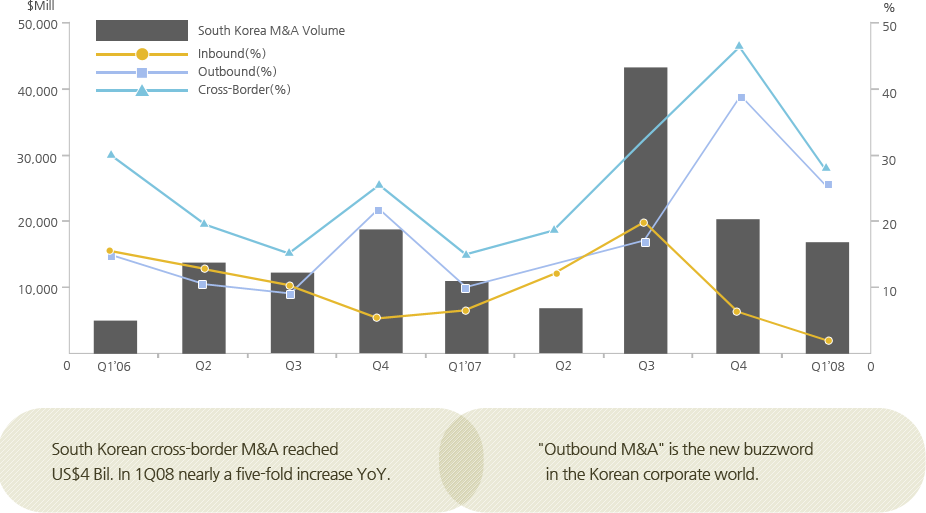
In 2007, Doosan Corporation buys three business units from Ingersoll Rand for $4.9 billion in the country's largest outbound M&A transaction.
"Recently, Korean companies have faced a dilemma: should they use their cash flows and debt capacity to acquire companies in Korea but outside their core businesses, or acquire outside Korea but within their core business."
"The Doosan transaction outlined the re-emergence of the chaebol and we expect to see further outbound activity from the Korean chaebols in 2008," said Citigroup's Mr. Renton, which advised South Korea's Doosan Infracore Co. in the acquisition."
- Securities

